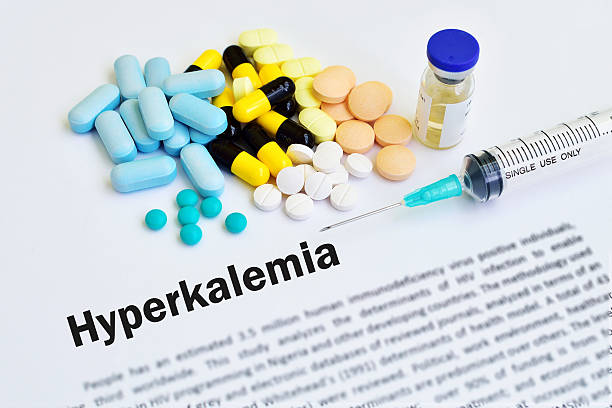Hyperkalemia is a medical condition that results from too much potassium in the blood. Potassium is a vital electrolyte needed for the body to function properly; however, while it is essential for your health, getting too much of it can be a serious problem.
The normal range of potassium for humans is between 3.5 and 5.0; a high range is between 5.1 and 6.0, but a dangerously high range is anything above 6.0. If potassium levels are lower than 3.4, it is called hypokalemia, and that is just as bad as hyperkalemia.
Causes of Hyperkalemia
Kidney disease is the most common cause of hyperkalemia. This is because the kidneys are supposed to remove excess potassium from the body, but if they do not function well, it will lead to a buildup of potassium in the blood. Also, a hormone called aldosterone notifies the kidney to remove excess potassium; any health condition that affects the production of this hormone can also lead to hyperkalemia.
Other common causes of this condition include:
- Medications such as angiotensin receptor blockers, angiotensin-converting enzyme inhibitors, and some chemotherapy drugs.
- Overuse of potassium supplements.
- Alcoholism.
- Excess potassium in your diet.
- Congestive heart failure.
- Excessive burns.
- Dehydration.
- HIV.
- Andison’s disease.
- Type-1 diabetes.
- Internal bleeding.
- Hormonal imbalance.
Symptoms of Hyperkalemia
The symptoms of this condition include:
- Chest pain.
- Tiredness or weakness.
- Trouble breathing.
- Nausea or vomiting.
- A feeling of numbness and tingling.
- Irregular heartbeats or palpitations.
- Extreme cases can cause paralysis.
Treatment
The goal of all hyperkalemia treatments is to remove excess potassium from the body as quickly as possible and stabilise the heart. Some of the treatment options include:
Medications
Your doctor will prescribe drugs that reduce potassium levels, including:
- Diuretics: This will cause you to urinate more and pass out more potassium.
- Resin: This binds with potassium and makes it possible for you to excrete it.
Hemodialysis
Hemodialysis is used to remove waste from the body, including excess potassium, for people who have hyperkalemia due to kidney problems.
Emergency Treatment
In severe cases of hyperkalemia, emergency treatment may be needed to lower high potassium levels immediately. These treatments are administered intravenously, and unlike the resin and diuretics, these only have temporary effects. They can immediately stabilise a patient until proper medical treatment is ready.
The medications for emergency treatment include:
- Sodium bicarbonate.
- Calcium gluconate.
- Insulin or glucose depends on the sugar level.
- Calcium chloride.



